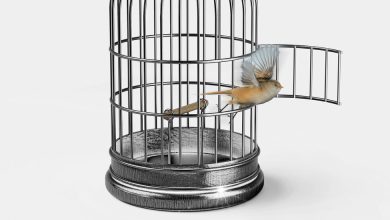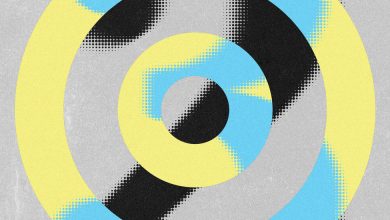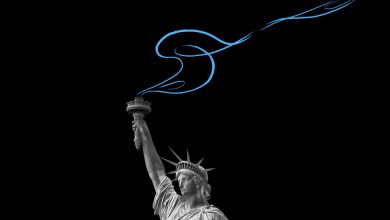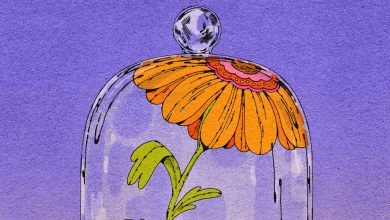The People Who Hate Liberalism Are Teaching Us What It Is

“After three decades of dominance, liberalism is losing its hold on Western minds,” Matthew Rose writes in his powerful new book, “A World After Liberalism.”
Rose does not mean liberalism in the way we typically use the word. This is not about supporting universal health care or disagreeing with Justice Alito. Rose means liberalism as in the shared assumptions of the West: a belief in human dignity, universal rights, individual flourishing and the consent of the governed.
That liberalism has been battered by financial crises, climate crisis, checkered pandemic responses, right-wing populists and a rising China. It seems exhausted, ground down, defined by the contradictions and broken promises that follow victory rather than the creativity and aspiration that attend struggle.
At least, it did. Ukraine’s refusal to bend the knee to Vladimir Putin has reminded the West that, for those who have not yet learned to take it for granted, life under liberalism is worth fighting for. But true renewal will require more than horror at Russia’s invasion or paeans to Ukraine’s courage. It will mean grappling with liberalism’s deficiencies and rediscovering its core radicalism.
“A World After Liberalism” is a bracing place to begin this rediscovery, in part because so much of it takes place in liberalism’s era of ascendance, even as it came under violent threat. In the book, Rose profiles Oswald Spengler, Julius Evola, Francis Parker Yockey, Alain de Benoist and Samuel Francis, five thinkers of the 20th century far right who are experiencing a revival in today’s — increasingly near — right. Some of them reach into our world directly. To take one example, Evola, a not-quite-fascist Italian theorist, has been cited by Steve Bannon and was translated into Russian by Aleksandr Dugin, the philosopher and mystic now sometimes known as “Putin’s Rasputin.”
The argument of the anti-liberals goes something like this: Our truest identities are rooted in the land in which we’re born and the kin among whom we’re raised. Our lives are given order and meaning because they are embedded in the larger structure and struggle of our people. Liberalism and, to some degree, Christianity have poisoned our cultural soil, setting us adrift in a world that prizes pleasure and derides tradition. Multiculturalism, in this telling, becomes a conservative ideal: We should celebrate the strength in cultural difference, reject the hollow universalist pieties of liberals and insist on the preservation of what sets people apart. The genius of this critique, as Rose writes, is that it recasts liberalism’s virtues into vices:
And yet the process runs in reverse, too. Both liberalism and Christianity become thrilling when described by their critics. Far from the technocratic slog of trade regulations and the deadening work of dragging laws past the filibuster, this liberalism is a marvel of imagination and ambition. It’s an ideology that believes human beings capable of new forms of social organization and a movement capable of untethering them from hierarchies so deeply embedded in our societies that they were thought to represent a natural, or even divine, order.
Christianity, too, gleams with a light it often lacks in today’s politics, and even in its pews: Here is a religion that insists on the dignity of all people and centers the poor and the marginalized. Rose’s subjects fear Christianity because they fear it cannot be tamed; even when the leaders they admire try to subvert it for their own purposes, it infects their societies with a latent egalitarianism, setting a trap that will inevitably be sprung.
Part of the book’s eerie relevance comes from the role Russia plays throughout. Spengler thought that the West was collapsing into incoherence and the next great cultural force might well emerge from a post-Bolshevik Russia. Yockey, one of the most egregious white supremacists in Rose’s menagerie, wrote in “anticipation of a resurgent Russia helping to correct a decadent West.” That is certainly the role Putin has claimed for himself, in speech after speech insisting on an identity rooted in soil and culture, on an imperialism justified by power and past, and on a conception of himself and Russia as lonely bulwarks fighting for traditional European culture.
When Putin gives a wartime statement standing with J.K. Rowling, the author of the Harry Potter books, against cancellation by those seeking rights and recognition for transgender people, this is the serious argument lurking in the inane juxtaposition: Putin is trying to rally those yearning for the certainties of the past and offended by the constant instability of the liberal present. The logic that says Ukraine belongs to Russia now because it belonged to Russia then is close cousin to the logic that defends the social hierarchies of today on the basis of their power in the past. (Rowling, it should be said, wants nothing to do with Putin.)
The misplaced shock that Putin would act as so many past leaders acted, that he would try to take what he wants just because he can, reflects liberalism’s long work remaking not just what we believe to be moral but what we believe to be normal. At its best and sometimes at its worst, liberalism makes the past into a truly foreign land, and that can turn those who still inhabit it into anachronisms in their own time. But liberals deceive themselves when they believe that that only happens to liberalism’s enemies. It also happens to liberalism’s would-be friends.
You can see this clearly in “Ukraine in Histories and Stories,” a collection edited by Volodymyr Yermolenko. There’s a particular poignancy in reading this book now, as it was released in 2019, in the interregnum between Russia’s annexation of Crimea and its current invasion of Ukraine. This is the recent past, but it, too, feels foreign.
In this collection of essays, written by Ukrainian intellectuals, Ukraine is not a darling of the West; it is a country that aspires to be part of the West, and struggles against the indifference and even contempt of those it admires. Throughout the book, the West’s ignorance of Ukraine is an ongoing theme, with author after author recalling futile efforts to try to interest Europeans in their experience and history and possibilities. “We, Ukrainians, are in love with Europe, Europe is in love with Russia, while Russia hates both us and Europe,” the novelist Yuri Andrukhovych writes.
The authors see Ukraine as a nation trapped painfully in a state of becoming, neither truly modern nor confidently traditionalist. Andrij Bondar, a Ukrainian essayist, offers a tragicomic list of what Ukraine lacks, including “trust in institutions,” “the culture of comic books,” “the protestant work ethic” and “Calvados or any other apple spirits.” But there is also much it has, including “a generally highly tolerant society,” “the ability to consolidate and unite efforts to attain a common goal,” “elements of democracy” and “a talent for enduring hardship.” Today it is clear that these were the things that mattered.
The authors also see that Europe is not all that it claimed to be. “For us, citizens of Ukraine, Europe still looks like the Europe of the late 20th century, while it has become absolutely different today,” writes Vakhtang Kebuladze, a Ukrainian philosopher. “I understand this, of course, and it hurts when I see the actions of Putin’s European right-wing and left-wing friends. I certainly do not like this Europe.”
Prophetically, Kebuladze saw that Western renewal might lie in attending to the experience of those struggling toward liberalism, not those comfortably ensconced in it. “Europeans could look at themselves through the eyes of those citizens of Ukraine who came to Maidan for the sake of the European future of their country, those who are dying in the East of our country while protecting it from Russian invasion, and those who are slowly dying in Russian prisons sent there on trumped up charges,” he writes. “Will you then perhaps like yourselves? Or will you see a way to overcome something that you do not like?”
The anti-liberals Rose profiles all believed that liberalism prescribed a life without sacrifice, an age when individual contentment reigned supreme and collective struggle disappeared. This was not true then, and it is not true now. What they missed is what liberalism actually believes: that there is a collective identity to be found in collective betterment, that making the future more just than the past is a mission as grand as any offered by antiquity.
But a critique they make thrums through our present, and should be taken seriously: Liberalism needs a healthier relationship to time. Can the past become a foreign country without those who still live there being turned into foreigners in their own land? If the future is to be unmapped, then how do we persuade those who fear it, or mistrust us, to agree to venture into its wilds?
I suspect another way of asking the same question is this: Can the constant confrontation with our failures and deficiencies produce a culture that is generous and forgiving? Can it be concerned with those who feel not just left behind, as many in America do, but left out, as so many Ukrainians were for so long?
The answer to that, if there is an answer to that, may lie in the Christianity the anti-liberals feared, which too few in politics actually practice. As an outsider to Christianity, what I’ve always found most beautiful about it is how strange it is. Here is a worldview built on a foundation of universal sin and insufficiency, an equality that bleeds out of the recognition that we are all broken, rather than that we must all be great. I’ve always envied the practice of confession, not least for its recognition that there will always be more to confess, and so there must always be more opportunities to be forgiven.
You can see some of this spirit, in secular form, in the Ukrainian essays. The tone is anything but triumphalist, with Russia having taken Crimea and the rest of Europe and the United States shrugging it off. The perspective is largely tragic, cleareyed about the work that may go undone and the distance left to travel. But the writing is generous, too: suffused with love for country, honesty about an often bloody history, determination despite a disappointing present and, above all, a commitment to one another.
There is much to learn from in that merger of self-criticism and deep solidarity.
The Times is committed to publishing a diversity of letters to the editor. We’d like to hear what you think about this or any of our articles. Here are some tips. And here’s our email: [email protected].
Follow The New York Times Opinion section on Facebook, Twitter (@NYTopinion) and Instagram.





